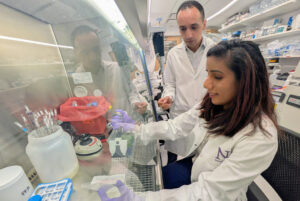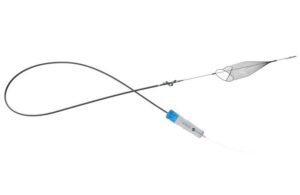MedTech News
.................... by Andrew Celentano

EmeTerm Wristband Significantly Reduces Postoperative Nausea and Vomiting in Major Orthopedic Surgeries
VANCOUVER, BC, Nov. 3, 2025 /PRNewswire/ — WAT Medical Enterprise Ltd. proudly announced the publication of a groundbreaking clinical trial in The Journal of Bone & Joint Surgery (JBJS) which demonstrates the significant benefits of the EmeTerm wristband in reducing postoperative nausea and vomiting (PONV) in patients undergoing total hip or knee arthroplasty (THA/TKA) under spinal anesthesia.

Biosensor technology may lead to breath test for lung cancer
University of Texas at Dallas researchers have developed biosensor technology that, when combined with artificial intelligence (AI), shows promise for detecting lung cancer through breath analysis.

Specific human gene can help the heart repair itself from heart attack or heart failure
A naturally occurring gene called Cyclin A2 (CCNA2), which turns off after birth in humans, can actually make new, functioning heart cells and help the heart repair itself from injury, including a heart attack or heart failure, when the gene is turned back on.

Neural implant smaller than a grain of salt can wirelessly track brain
Cornell University researchers and collaborators have developed a neural implant so small that it can rest on a grain of salt, yet it can wirelessly transmit brain activity data in a living animal for more than a year.

Turning on an immune pathway in tumors could lead to their destruction
MIT researchers show they can use messenger RNA to activate the pathway and trigger the immune system to attack tumors.

Therapy reawakens immune system to fight pancreatic cancer
Antibody unmasks pancreatic tumors’ ‘sugar-coated’ disguise to keep them from evading immune system

FDA clears InterVene’s in-stent restenosis catheter
InterVene’s Recana is claimed to be the first fully integrated catheter system to address venous in-stent restenosis (ISR).

Pulsenmore wins FDA nod for at-home prenatal ultrasound
Pulsenmore announced today that it received FDA de novo clearance for its home-use prenatal ultrasound platform.
